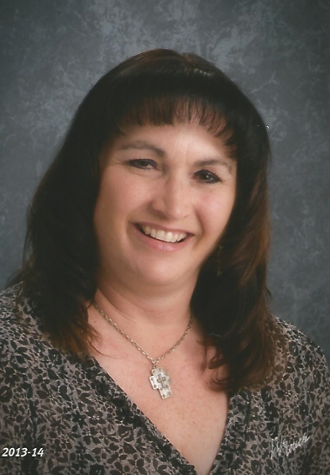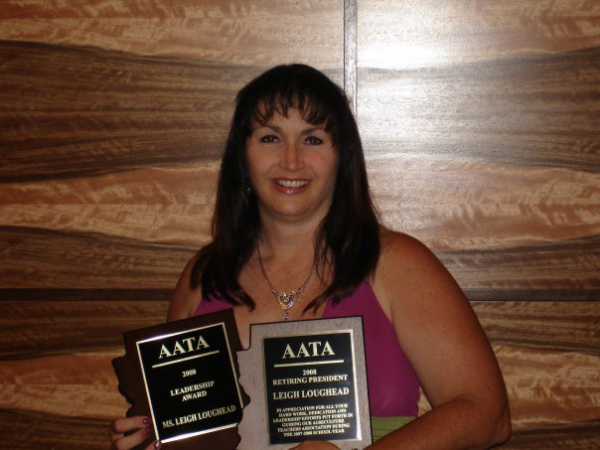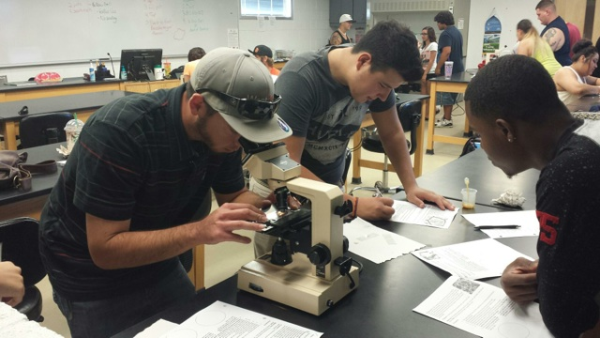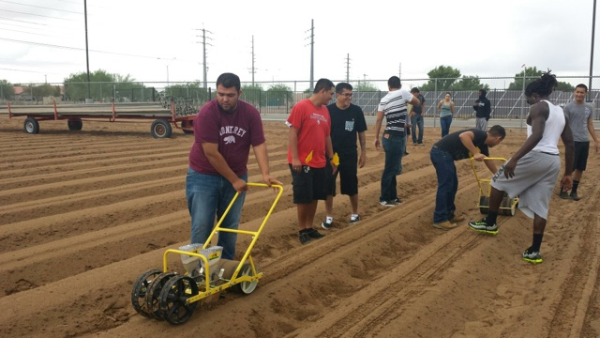How will Ag Education & FFA Stay Relevant?
Published
9/23/2014
By Justen Ollendick, Arizona Farm Bureau Intern: Agricultural Education and the National FFA Organization date back to 1928, when 33 farm boys chartered a course for the future. Students are provided with opportunities for leadership development, personal growth, and career success through Agricultural Education and FFA. There are three major components – known as the 3-circle Model -- which agriculture education is delivered
Ms. Leigh Loughead of Yuma, Arizona sat down to talk with me about how Agricultural education & FFA will have to stay relevant for another 86 years. After serving as a State FFA Officer in 1988, Ms. Loughead continued on to graduate from the University of Arizona in 1994 with a Bachelors of Science degree in Agricultural Education. For 23 years of her teaching career, she taught high school Agriculture Education at Yuma High School, from 1991 until May 2014. Leigh is now a full-time faculty member/professor at Arizona Western College where she has been teaching a variety of Agricultural

Leigh Loughead, full-time faculty at Arizona Western College.
So tell us....
How well do you really know your students? In the past 23 years of my high school Agriculture Education profession, I would say that those students who were in the program for the full four years, I knew very well. Some of these students I would see before school, after school, on the weekends, and during the class that they were enrolled in. For some students as an Agriculture Education Teacher/FFA Advisor, I would spend more time with them than their parents did. Some of my first students are now good friends.
What does a “technologically advanced world” mean for the future of agricultural education? A technologically advanced world means that the future teachers in Agricultural Education are going to have to understand more technology than they have ever had to before. In order to teach using technology, you have to understand at least the
Do you think the 3-circle model will still be relevant, 10-20 years from now? I believe that the 3-circle model of Agriculture Education is as relevant today as it was when it was first developed and that way into the future, it will continue to be relevant.Studies have shown over and over again that if students see something, say something and then do something they will retain the knowledge longer. The 3-circle model allows this. Through the Classroom Portion, this is the student seeing and saying something. The SAE Portion allows
What
What is your background in agricultural education & FFA? Growing up my father, Herold Loughead, was an Extension Agent in Maricopa County where he was the Livestock Specialist. I have been involved in agriculture my entire life. Mostly on the Animal Science side as we boarded horses, had a flock of registered Hampshire sheep, had a farrow to finish hog operation and all of my siblings and I exhibited market animals at the Arizona State Fair, Arizona National Livestock Show, Maricopa County Fair and various other county fairs. I was a member of 4-H as well as my siblings and when we all started high school, the FFA tradition continued. My father had been

Loughead's lifetime experiences in agriculture and teaching it are a family tradition.
What changes have you seen in your career, as they pertain to agricultural education & FFA? The biggest change that I have seen in Agriculture Education over the past 23 years is the use of technology in the classrooms. This has been a good thing and a bad thing. The good thing is that when a student has a question and I am not certain of the answer, you can just “Google” the answer. The bad thing is that now that you can just “Google” the answer, what pops up is not always the correct answer. This is when it becomes a teaching moment, and you have to teach students how to decipher their way through the garbage until they find the correct answer. The bad thing is also that every student (almost) has a cell phone, and they are so engrossed and so worried about their status updates, etc. that they do not even try to focus on what they are supposed to be learning in class. Technology in a way has made us dumber.FFA has continued to change and evolve as the FFA membership has changed and evolved. When I was in high school the FFA Creed said, “I believe in the future of farming”. When I was a State FFA Officer we debated the need to change to include ALL FFA members, not just those going into the “farming” industry. When the FFA Creed changed in 1988 to say “I believe in the future of agriculture”, the organization started to embrace all aspects of the agriculture industry and the overall membership is now at the highest it has ever been. FFA has gotten rid of programs that became antiquated or no longer

Every committed Ag teacher will tell you that the hands-on learning makes all the difference for young people pursuing a career in agriculture.
If any, what changes can you foresee in the next 10-20 years? Locally, and nationally? In the next 10 to 20 years agriculture is going to continue to learn how to grow more with less. This is where some of the urban Agriculture Education programs will come in, and their use of the Greenhouse for teaching plant science. High School administrators will need to make sure that programs have the equipment necessary for teachers to teach students in an ever-growing age of technology. Agriculture will continue to be the MOST IMPORTANT industry!!! As long as the agriculture industry is strong and stands together, then the United States and American Agriculture will thrive.

Students learning
What resources does the Arizona Farm Bureau have that you are able to utilize within your local program? What are the benefits? The best thing that the Arizona Farm Bureau offers to local Agriculture Education teachers is the vast wealth of actual agriculture experience that the members have. The problem is that most new Agriculture Education teachers don’t know who their local Farm Bureau members are, and don’t know who to call in order to make contact with the local Farm Bureau members to possibly come in and be guest speakers. Or even to sit down with the local teacher and talk to them about the issues that are affecting agriculture locally, throughout the state and throughout the nation.
Because of my friendship with Arizona Farm Bureau's Field Manager, Liz Foster, I was able to make contact with Ag Education Associate Director, Katie Aikins, in order to have my FFA members participate in the Ag in the Classroom presentations in Yuma County.I do know that there are a lot of benefits, but when I was teaching high school Agriculture Science I was so busy doing the things necessary to try and have a successful program, as well as FFA Chapter that I did not take advantage of the benefits, as I should have.